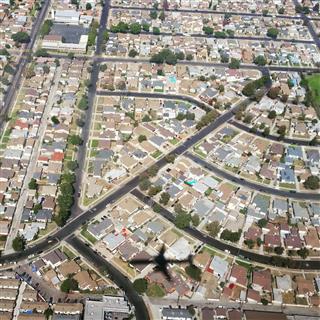
Buying your first home is probably the biggest investment you will ever make. Hence, it is vital to go about the endeavor armed with the right information, directed by the right real estate professionals and in consultation with a detailed checklist.
When entering the real estate arena for the first time, it is important to ensure that you indulge in a little research and a lot of social networking. Irrespective of the location of the property you fancy, there are certain essentials that need to be ironed out prior to making any investment. A carefully drafted home buyer’s checklist not only makes the endeavor a lot easier but also empowers you to rule out error.
Checklist
Some of the essentials that you need to personally check and verify include:
- Your budget and precise family needs; these include considerations for a probable loan requirement and the eligibility criteria demands for the same.
- Property value study and analysis maintained by a licensed evaluator prior to making any payments.
- Home inspection report: to assess the quality of construction and essential renovations on purchase.
- Print out of MLS or Multiple Listing Service ratings; they help you to gather information on the description of the property, attached encumbrances, and utilities.
- Seller’s Property Disclosure Statement: This document provides you a thorough insight into the property and its condition.
- Homeowners Association Governing Document: to investigate the Articles of Incorporation and Bylaws that dictate architectural control standards.
- Title Report issued by the Escrow Company; this title commitment/report declares encumbrances against the property, which may affect future structural additions.
- Identification of a good “Buyers Agent”: It is very important to consult a real estate agent who will promote your interests exclusively.
- Your credit report rating and score pre-approved by a good financial consultant; this helps to eliminate scope for delay at a later stage of the buying procedure. Your financial consultant should also be able to identify the ideal loan plan for your specific case and the best monthly payment options.
- Essential neighborhood check, in and around the immediate locality you wish to invest in. Check for proximity to schools, grocery stores, and utilities. You should also inquire about the local crime rate, traffic, and other real estate availability that fits within your predetermined budget.
- Documents maintained by the Homeowners Association: These include records on covenants, conditions, or restrictions recorded against the property. The documents specify restrictions on landscaping, parking, and rules and regulations pertaining to fixtures such as play equipment and satellite antennas, among other common amenities.
- Local municipal office records on property restrictions, such as liens and easements that may be applicable to the chosen property or locality, as well as previous negotiations on the shortlisted property.
If you have a busy schedule and can’t go home-hunting yourself, it is vital to invest in the services of a good real estate agent. The professional is usually equipped to investigate property location and subsequent sale negotiation, property evaluation, and procurement of necessary documentation. Your checklist should be designed to investigate, verify, and review the property and your financial standing.
The Home Warranty Policy, Affidavit of Disclosure, Lead-based Paint Disclosure Form, County Assessor’s Record, and Professional Home Inspection Report are the other documents that really assist you in identifying the best deal. It pays to develop a rapport with neighbors and drive around the neighborhood at different times of the day to investigate the activities and social developments. Your checklist should be crafted to accommodate regular additions and reviews.







